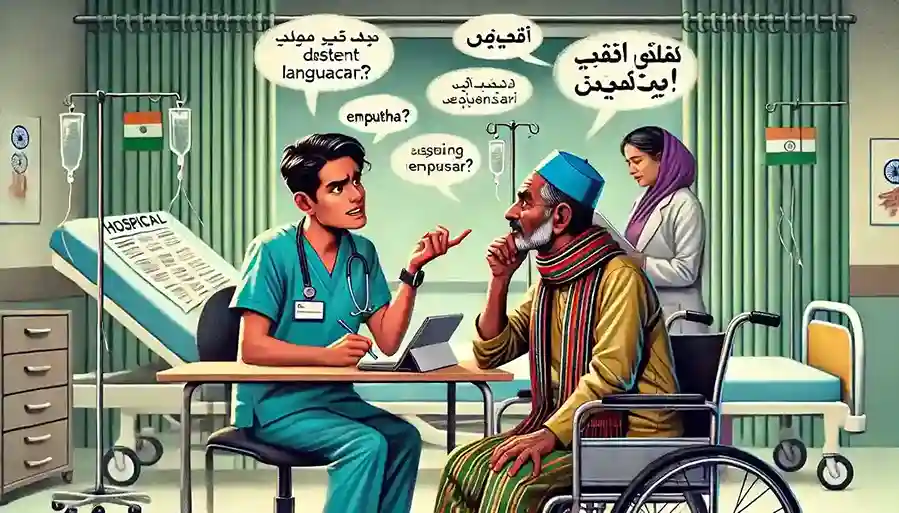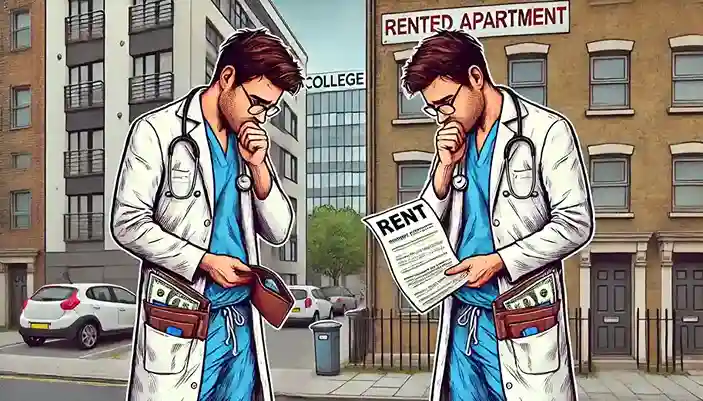Should You Stay in Your City for MBBS or Move Away? Factors to Consider
Hello future doctors. One of the biggest decisions you’ll face after clearing NEET is selecting your college. The college choice starts with the question: whether to stay in your hometown or move to a different city in another state.
I personally moved from Pune to Mumbai for my MBBS, it was a safe bet. I could stay within my state and go home as much as I wanted to, but I could also experience the independence and freedom of college. It was one of the best decisions I made. But this decision isn’t the same for everyone, and there are many factors to consider.
Here’s a breakdown of the pros and cons to help you decide what’s the best choice for your MBBS journey.
Moving Out of Your Comfort Zone
Home is comfortable and safe. You do not feel the need to do much around the house because most of the stuff is done for you. But stepping out of the comfort of your home and living by yourself can open doors that you might have never thought of. It pushes you to become independent. It pushes you to understand who you are, and to create an independent identity for yourself.

You can learn all the essential life skills within the first year of moving out itself. Budgeting, time management, cooking, cleaning, prioritizing, socializing: These things are just as important as your academic learning in MBBS.
Plus, there is the freedom of being away from your parent’s eyes and protection. It can be scary yet empowering.
Access to Better Opportunities
Sometimes, moving to another city opens up opportunities that you might not have in your home city. Major cities often have better facilities, experienced faculty, and more clinical exposure due to larger hospitals and patient inflow. One of my friends moved in from Akola to Mumbai, and she says that she can see the difference in opportunities very clearly.
So, If your hometown doesn’t have the top medical colleges or the clinical exposure that you want, moving to another city could be a crucial decision for your medical career.

New Cultures and Languages
One downside of moving to another city is the potential language barrier and cultural differences. If you move to a state where the regional language is different, it can be a challenge, especially when interacting with patients during clinical postings.

For example, if you move from Maharashtra to Tamil Nadu or West Bengal, understanding and speaking the local language becomes difficult in patient interaction. Yes, you can learn the local languages and settle in, but do not go in blindly. It is something you need to be prepared for.
Try learning some basic phrases before moving, or ask seniors for advice on how to manage in the beginning. Later on, the same dread turns into excitement of learning a new culture.
Cost of Living and Travel
Another practical consideration is the cost of living and travel distance from home. Moving to a metropolitan city can be expensive in terms of rent, food, and transportation. On the other hand, if you stay in your hometown, you can live at home and save on living expenses.

In some colleges you do not get hostels in the first year. In this case, you will have to rent out an apartment or live with your local guardian. For this, you will have to consider: How far and how long are you willing to travel from your apartment to the college? If your home city has decent college options, then it might be better to stay.
Pro Tip: If the financial strain of moving to a bigger city feels too much, look into scholarships, student loans, or PG accommodations that could reduce your financial burden.
Personal Growth and Networking
Moving to a new city gives you the chance to expand your network. You’ll meet new people from different backgrounds, which can broaden your perspective.
I feel like an entirely different person than I was before moving out. We learn to live independently, handle problems on our own, and develop self-discipline. This is a little difficult to do in the comfort of your home.

Plus, the professional connections made by moving to another city, can help you later in your career for internships, and even job placements.
Family Support and Comfort
If you’re someone who absolutely needs the presence of your family, staying in your hometown could be a great choice. Having your family’s support can reduce stress, especially during tough exams or clinical postings.
On the other hand, if you choose to move away, it can be lonely at first, and homesickness will be a real challenge. Having your family nearby can be a source of comfort and emotional stability.
Pro Tip: If you decide to stay in your city, make sure to set boundaries between your study life and family life. Being at home can sometimes lead to distractions, so it’s important to create a routine that allows you to stay focused on your studies.

Local Travel to College
Sometimes, staying in can be more stressful than moving out. Most colleges do not offer hostel accommodations to localities (students who belong to the same city.) This can lead to missing out on the hostel experience and also long hours of travel everyday.
Considering the traffic and crowdedness of most cities in India, daily travel can cause a lot of stress and fatigue.
Final Thoughts: Weighing Your Options
Deciding whether to stay in your city or move to another one for MBBS depends on your personal preferences and circumstances. Moving out can offer great opportunities for growth, independence, and exposure to better academic resources. But staying in your hometown also provides comfort, family support, and fewer logistical problems.
Ask yourself:
- What are my career goals?
- Can I manage the cost and challenges of moving?
- Will I thrive in a new environment, or would I prefer to stay closer to home?
Whatever decision you make, trust that it will be the right one for your journey. Whether you stay or go, the ultimate goal is the same: becoming a successful, confident doctor.
All the best.






